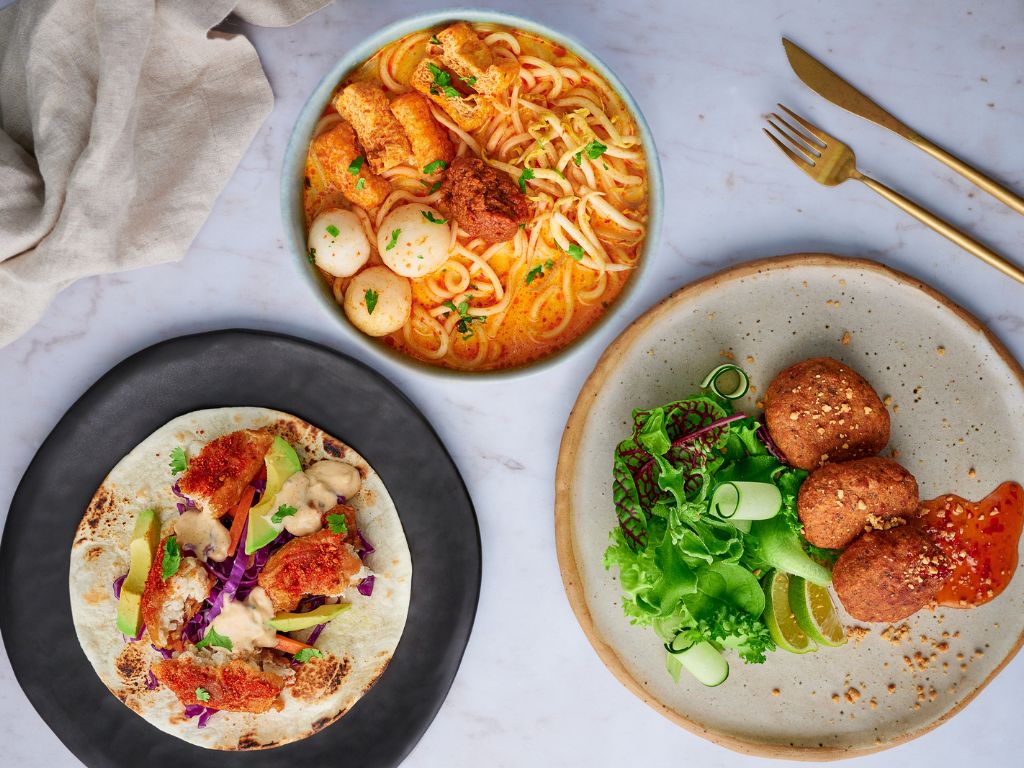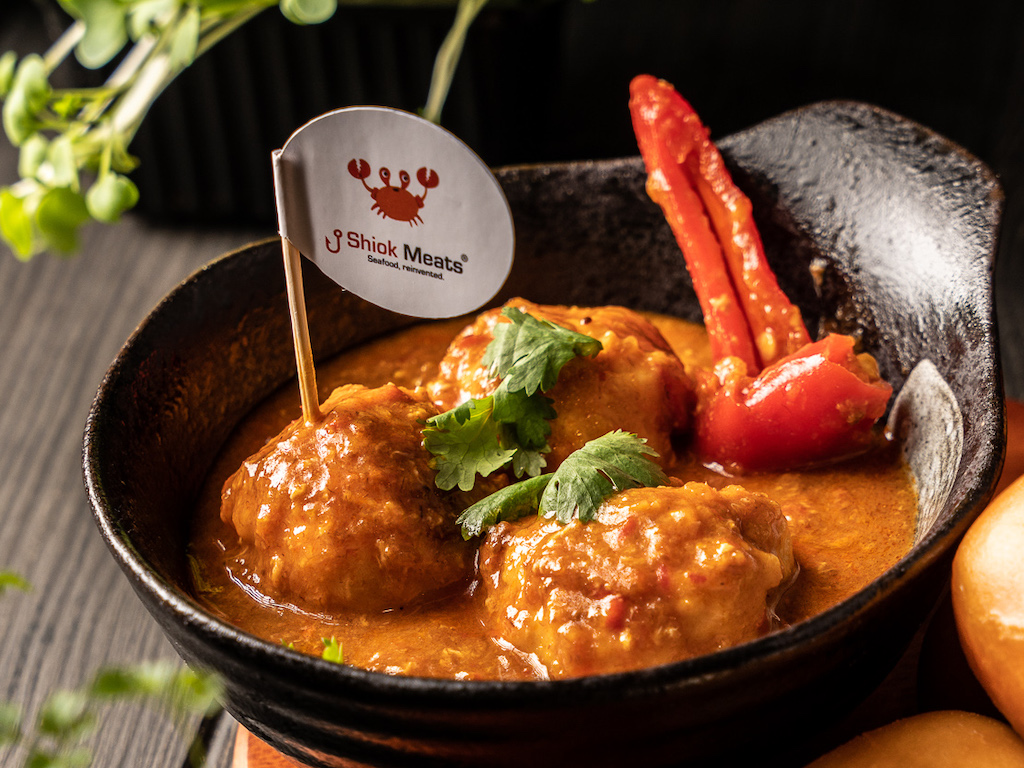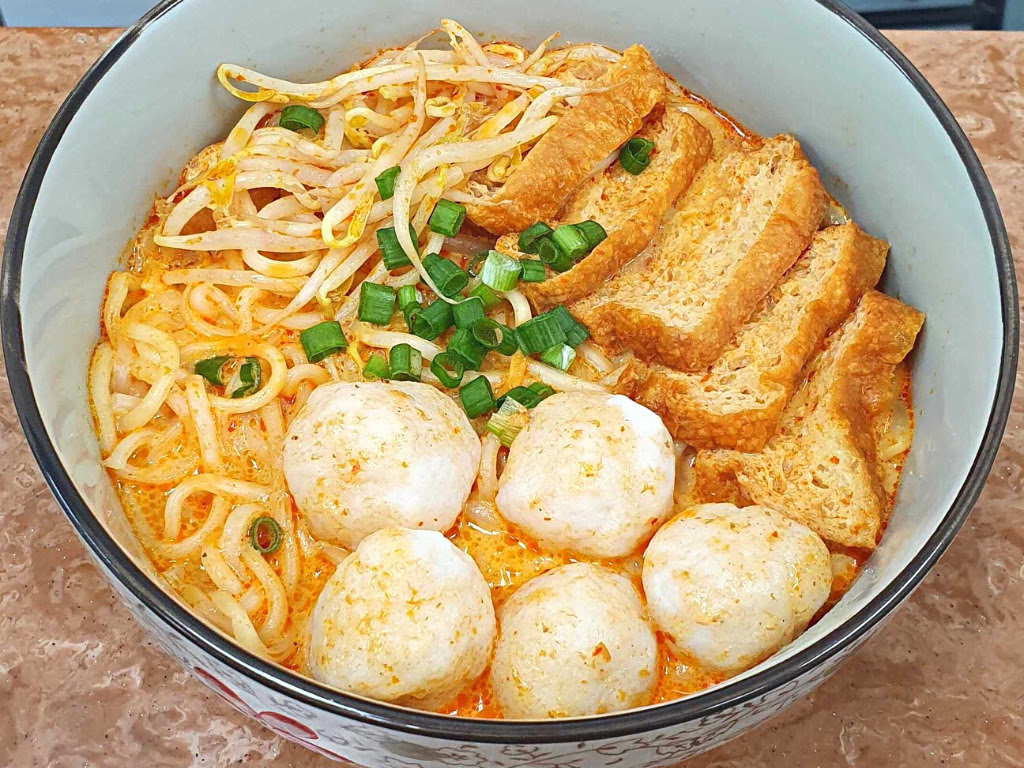
In a major shift in the cultivated seafood space, Singaporean startups Umami Bioworks and Shiok Meats have announced plans to merge. Once finalised, Umami Bioworks CEO Mihir Pershad will lead the combined entity, and Shiok Meats CEO Sandhya Sriram will exit the company.
Singapore-based cultivated seafood startups Umami Bioworks and Shiok Meats have agreed to merge, establishing the entity as a global leader in the cellular agriculture industry.
The combined entity will retain the Umami Bioworks name and be led by existing CEO Mihir Pershad, while the leadership will explore how best to leverage the Shiok Meats brand – which will be retained – in the near future.
Green Queen understands that Shiok Meats co-founder and CEO Sandhya Sriram will leave the company after six years at the helm. As for other employees, they will be joining the Umami Bioworks team to support its work on the development of crustacean cell lines and media.
The impending merger is a major development in the cultivated seafood industry, with two of the most well-known companies joining forces at a time when cultivated meat is making progress with regulation and commercialisation. Umami Bioworks itself began submitting its first regulatory dossiers and signed initial customers for its production facilities in Q4 2023. “We are currently actively engaged with multiple regulators worldwide and are planning several regulatory dossier submissions this year.
The company – whose board of directors will include global seafood investment leaders Hatch Blue and Aqua-Spark – intends to continue its ongoing product development with strategic partners for cultivated eel, grouper fish, and pet treats, which will be its lead priorities for market entry. Umami Bioworks will follow a similar approach for additional products and species, including crustaceans, which have been the focus of Shiok Meats’ work.
“Cultivated seafood as a sector is now on the cusp of commercialisation and initial scale-up,” Pershad told Green Queen. “We felt it was a good time to take a more strategic look at how the industry may evolve in the next few years and how we could position the company to be the partner of choice for incumbents looking to adopt a more sustainable production technology. The merger with Shiok Meats stood out as an opportunity to bring together the IP, resources, and commercial progress of two pioneers in the sector to establish a leading platform for cultivated seafood.”
In an exclusive conversation with Green Queen, Sriram – who is still working with Umami Bioworks on a smooth transition and handover – outlined that in a novel industry like cultivated meat, “consolidation is progress”, stating: “For Shiok Meats, it was the right time to do an M&A with the shift in the alternative protein industry and the merger was put in place.” She added that her hope was that the merged company “becomes the leading global cultivated seafood platform”.

Umami Meats will continue Shiok Meats’ work on crustaceans
The merger announcement has been about eight to nine months in the making, and is aimed at expediting the path to salable production of cultivated seafood. With the deal tipped to be completed soon, both startups believe joining forces will help enhance go-to-market efficiencies, expand commercial opportunities, and accelerate regulatory approvals and market entry.
“We are currently working through the integration process to determine the right combination of facilities to fuel our next stage of growth. We will be consolidating our resources and assets and establishing integrated centres to optimise resource allocation toward cell line, media and bioprocess R&D,” explained Pershad.
Shiok Meats has been working on scaling up cell lines for three crustacean species: lobster, shrimp and crab. Pershad confirmed that the new entity will continue this work. “We have seen strong pull from the market, including our existing strategic partners, for cultivated crustacean options,” he said. “Further, UMAMI’s priority has always been ETP (endangered, threatened, and protected) species that are unsuited to large-scale commercial farming and facing growing demand. Crustaceans like lobster and crab are clearly aligned with our strategic mandate.”
The approach will mirror Umami Bioworks’ existing strategy of “securing commercial interest from an industry incumbent and working through a development programme in parallel with production scale-up”. This will result in finished products ready to sell under its partners’ brands, with Umami Bioworks’ ‘plug-and-play’ biomanufacturing system anchoring the production line.
“Cell line work on finfish and crustaceans will continue at these integrated R&D centres,” added Pershad. “The Shiok facilities established for production scale-up will also be an essential part of our next phase of technical validation, as we are now scaling up unagi and grouper.”

Hybrid seafood products will pave way for market launch
Umami Meats will follow the same path taken by counterparts like Eat Just, Aleph Farms and Meatable, mixing cultivated animal cells (fish, in this case) with plant-based ingredients for its first products. This helps bring down the costs of cultivated meat, which are currently much higher than both conventional and plant-based meat products.
“We are initially planning to bring cultivated unagi (eel) and white fish (grouper) to the market via hybrid product applications, as these are the most advanced species in our pipeline and those for which we already have commitments from existing strategic partners.”
So far, only Upside Foods (US), Eat Just (Singapore and US) and Aleph Farms (Israel) have received regulatory approval to sell cultivated meat. Within Singapore, which granted the world’s first such greenlight in 2020, Vital Meat and Meatable expect clearance to be imminent for their chicken and pork, respectively. But Australia’s Vow Food could beat them to it, with its application for a cultivated quail product in Australia and New Zealand in advanced stages.
“Umami will initially focus on Singapore and the US due to clear regulatory frameworks and established regulatory review processes,” Pershad said. “However, Umami sees multiple key markets in Asia, including Japan, South Korea, and China, which have tremendous appetite for priority species and growing seafood demand.
“Once we have completed the integration, we will also establish a clear roadmap for crustacean approvals in line with market priorities of our customers.

Why Shiok Meats founder Sandhya Sriram is leaving, and what’s next
Sriram told Green Queen that she had chosen to step down as CEO to take “a well-deserved break”, but next up, she wants to “be part of the more democratised space of agrifood tech.”
Asked if she had any regrets about her journey with Shiok Meats, Sriram said she no, but added that if she could do things over, she “would have done more due diligence on some investors” and she “would not have grown the team so aggressively”. “The biggest learnings are that if you set your mind to do something, you have to work towards that goal, whatever happens. That means more tides against you – and you have to fight harder,” she explained.
Still, Sriram said she was proud of “being the first and a pioneer for the cultivated food space in Singapore and southeast Asia”, adding that as a first mover in the space, the company had opened up the path for others. “That also meant things were much harder than for the rest,” she added.
The cultivated meat category is facing headwinds of late, with a sceptical mainstream media landscape and political obstacles in Europe and the US. Does Sriram still believe in the industry? “For sure, yes!” she exclaimed, adding that companies need to be far more transparent and more upfront about the challenges, particularly when it comes to scaling, and that investors need to be far more patient and supportive.
She concluded: “I am excited for the future of cultivated protein and hope to be around in this industry for much longer and make further impact.”
The post Singaporean Cultivated Seafood Startups Umami Bioworks and Shiok Meats Announce Merger appeared first on Green Queen.
This post was originally published on Green Queen.